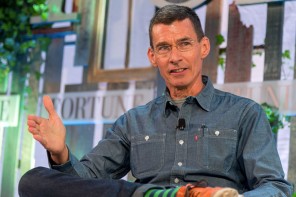Written by: Staff Reporter
Rocking the Gardens, which took place in Johannesburg over the weekend of 9 &10 October has earned its stripes as a festival that does its bit to raise environmental awareness – without making people feel guilty about their excessive lifestyles.
We are often bombarded with environmental messages that trigger the guilt reflex, but Rocking the Gardens highlighted interesting and innovative ways that people can make a positive environmental difference in their daily lives.
Everything, from the impressive festival T-shirts which were made from hemp (environmentally friendlier because it does not require the use of pesticides or insecticides), to the solar phone charging stations made available by one of the sponsors, and the presence of the World Wide Fund for Nature (WWF) pandas, recruiting new members and creating awareness, seemed geared towards instilling an effortless environmental ethos.
The festival organisers emphasise that their mission is to show people the true meaning of ‘Play Hard, Tread Lightly‘ – a concept that led to the creation of the festival in the first place.
“Rocking the Gardens has incorporated every measure possible to ensure that eco-conscious is more than just a cool fashionable concept but a lifestyle waiting to take form,” say the organisers.
They also say that the eco-friendly mindset is something that slowly creeps up on you and before you know it, what seemed inconvenient and a waste of time at first, suddenly reveals itself as fun – ultimately changing the world we live in.
A strong focus on recycling at the event was evident, and even though, disappointingly, many revellers still abandoned their litter where they sat, It would be nice to think that the recycling stations triggered some consciousness on recycling among party-goers.
The stalls at the event attracted interest, and more than the regular consumable trinkets, there were stalls like Vuka Shumba organics selling compost and offering permaculture gardening lessons, representatives from Trees and Food for Africa, as well as lesser known Upcycle, and people selling Ecowash magnetic laundry balls.
Sunfire Solutions were also there, displaying their parabolic solar cookers.
But beyond the efforts visible to the public who attended the event, the Rocking the Gardens organisers have put some serious effort into greening the event.
In March 2010, Rocking the Gardens, and the event’s older sister in the Western Cape – Rocking the Daisies, won the inaugural Climate Change Leadership Award for the Small and Medium Business Sector.
The Climate Change Leadership Awards recognise, reward and celebrate South African businesses, community-based organisations or individuals who are leaders in climate change issues, and who are taking the lead through positive voluntary action, by implementing a range of activities related to combating global warming.
After the first Rocking the Gardens event in Johannesburg in November 2009, which put forward environmental issues to a crowd that might not usually be exposed to them, the organisers produced a full eco audit.
The impact of the festival was evaluated by Global Carbon Exchange, and the final report showed that the total carbon emissions for the Rocking the Gardens Event last year were 28,46 tons of carbon dioxide equivalent.
“This is a relatively low footprint for an event,” say the organisers, and attribute that to a number of interventions.
This starts with the fact that the event was organised in an environmentally conscious manner, paying special attention to keeping impacts and emissions low, and also the fact that none of the festival goers stayed in a hotel specifically for the event.
This could change in 2010 considering that Rocking the Gardens was held over two days this year, as opposed to only one day in 2009.
There was also limited air travel to attend the event last year, whereas this might change in 2010 as a number of the artists performed at both Rocking the Gardens and Rocking the Daisies and had to travel between cities.
Following the report in 2009, the festival organisers would try to offer only locally sourced, organic food for sale at the event, and set up specific carbon data-gathering mechanisms to ensure that all data from the event is collected (such as municipal water use).
This could engage suppliers and participants, and also perform the dual role of reducing emissions through planning as well as raising awareness of the issue.
With all of this focus on environmental issues, it could have been easy for organisers to lose sight of the fun-factor of the festival, but this did not happen. Johannesburg music lovers are benefitting from the extension of this event to the north, and enjoying every minute of it.
The event was well arranged, and better catered for than any event that has taken place in the Emmarentia Botanical Gardens before.
There was more of a variety of stalls, and food and drinks available than at previous events in the park. This ensured that the attendees maintained the peace-loving spirit that is always helped by not having to wait hours in a queue for a drink.
And of course the bands put on a great performance. The Joburg audience loved acts like Hot Water from Cape Town, which rarely make appearances in Johannesburg, and the reunited performance from the Springbok Nude Girls had the older rockers jumping up and down with enthusiastic rock ‘n roll nostalgia.
The liveeco team






